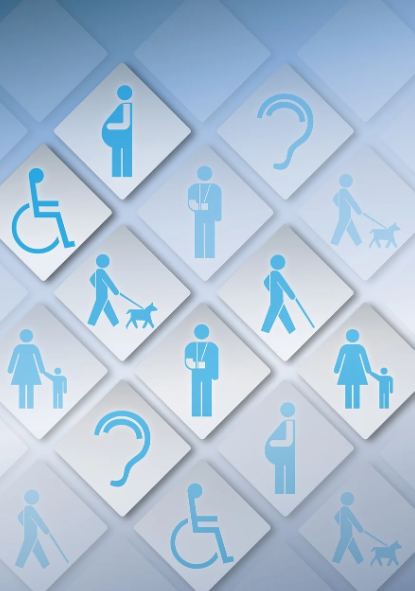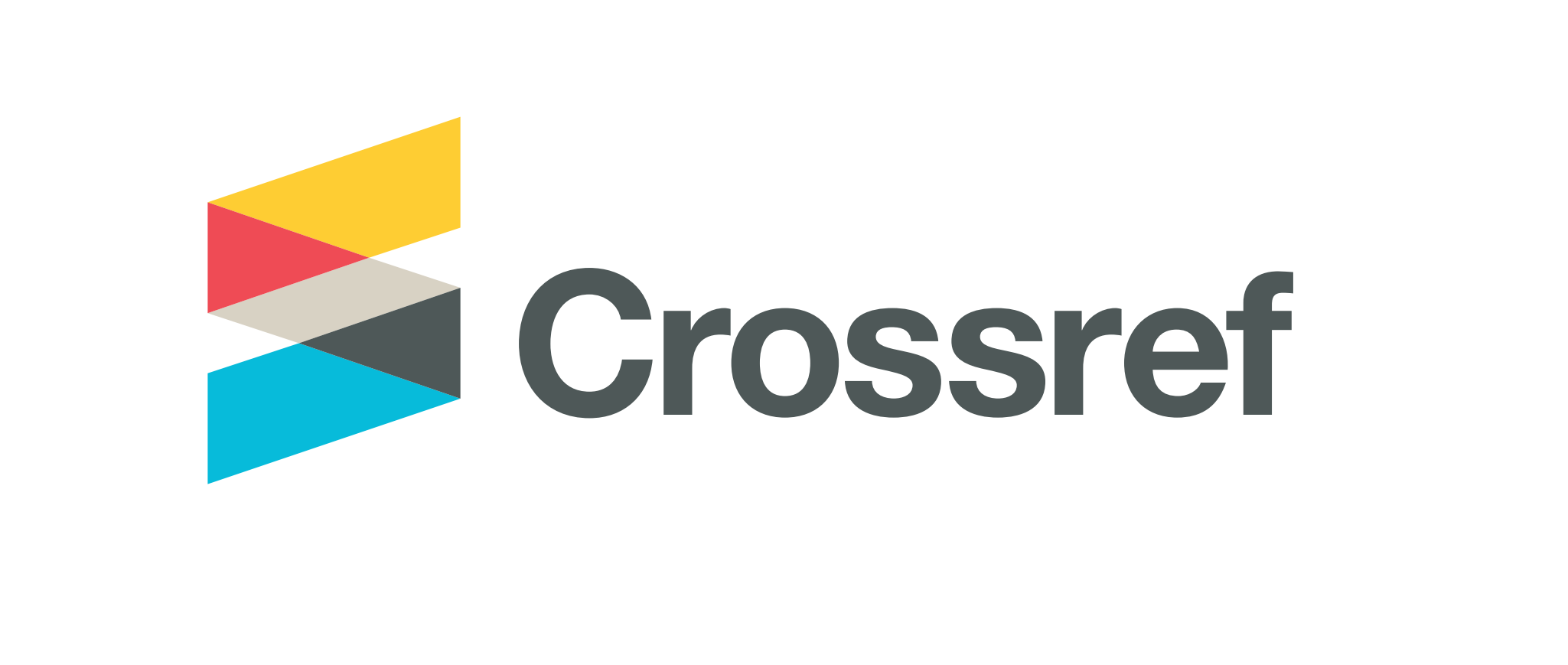Comprendiendo la Discapacidad y el Capacitismo: Implicaciones para la Investigación y la Práctica en Educación Física en América del Sur
DOI:
https://doi.org/10.59758/rcci.2024.2.e35Palabras clave:
Educación física inclusiva, capacitismo, modelos de discapacidad, Sur GlobalResumen
Este artículo ofrece una discusión crítica sobre diversas interpretaciones dominantes de la discapacidad, predominantemente construidas y desarrolladas desde los puntos de vista del Norte Global. Además, se profundiza en la noción de capacitismo como un concepto definitorio que influye y es influenciado por la comprensión de la discapacidad. Dentro de este discurso, se discute sobre la aplicabilidad, críticas e implicaciones de estas perspectivas y conceptos en el Sur Global, con un enfoque particular en la educación física sudamericana. Se espera fomentar el pensamiento y el avance académico sobre la discapacidad en los contextos del Sur Global, contribuyendo al análisis crítico de cómo estos puntos de vista sobre la discapacidad influyen en nuestro compromiso y provisión de apoyo a las personas con discapacidad en entornos de educación física.
Descargas
Referencias
Abay, R. A. & Soldatic, K. (2024). The coloniality of disability: Analysing intersectional colonialities and subaltern resistance. In: T. Chataika & D. Goodley (Eds.). The Routledge handbook of postcolonial disability studies, pp. 15-23. Routledge.
Arroyo-Rojas, F. & Hodge, S. R. (2024a). Adapted physical education course content devoted to inclusion and social justice in Chile: A document analysis. International Journal of Kinesiology in Higher Education, 1-14. https://doi.org/10.1080/24711616.2024.2349294
Arroyo-Rojas, F. & Hodge, S. R. (2024b). Perspectives on inclusion in physical education at three physical education teacher education programs in Chile. Journal of Teaching in Physical Education, 1-9. https://doi.org/10.1123/jtpe.2023-0126
Arroyo-Rojas, F.; Simpson, A. C.; Laxton, P.; Leake, M.; Linker, J. & Haegele, J. A. (2023). Ableism in kinesiology in higher education: A conversation starter. Kinesiology Review, 12(2), 20-126. https://doi.org/10.1123/kr.2022-0014
Ball, L. E. & Haegele, J. A. (2024). Examining ableism through the physical activity experiences of blind and visually impaired women. Journal of Physical Activity & Health, 21(7), 683-691. https://doi.org/10.1123/jpah.2023-0757
Barton, L. (2009). Disability, physical education, and sport: Some critical observations and questions. In: H. Fitzgerald (Ed.). Disability and youth sport, pp. 39-50. Routledge.
Brittain, I. (2004). Perceptions of disability and their impact upon involvement in sport for people with disabilities at all levels. Journal of Sport & Social Issues, 28, 429-452. http://dx.doi.org/10.1177/0193723504268729
Brittain, I.; Biscaia, R. & Gerard, S. (2020). Ableism as a regulator of social practice and disabled people’s self-determination to participate in sport and physical activity. Leisure Studies, 39(2), 209–224. https://doi.org/10.1080/02614367.2019.1694569
Campbell, F. K. (2009). Contours of ableism: Territories, objects, disability, and desire. Palgrave Macmillan.
Chataika, T. (2018). The Routledge Handbook of Disability in Southern Africa. Routledge.
Connell, R. (2011). Southern bodies and disability: Re-thinking concepts. Third World Quarterly, 32(8), 1369-1381. https://doi.10.1080/01436597.2011.61479
Donoghue, C. (2003). Challenging the authority of the medical definition of disability: An analysis of the resistance to the social constructionist paradigm. Disability & Society, 18(2), 199-208. http://dx.doi.org/10.1080/0968759032000052833
Fitzgerald, H. (2006). Disability and physical education. In: D. Kirk, D. MacDonald, & M. O’Sullivan (Eds.). The handbook of physical education, pp. 752-766. SAGE.
Giese, M.; Buchner, T.; Mihajlovic, C. & Oldorp, F. (2022). The subject of Special Olympics – interrogating the inclusive potentials of a sport movement from an ableism-critical perspective. Sport in Society, 25(10), 2178-2192. https://doi.org/10.1080/17430437.2022.2113061
Giese, M.; Haegele, J. A. & Maher, A.J. (2024). The ableist underpinnings of normative motor assessments in adapted physical education. Journal of Teaching in Physical Education, 3(1), 72-78. https://doi.org/10.1123/jtpe.2022-0239
Giese, M. & Ruin, S. (2018). Forgotten bodies—An examination of physical education from the perspective of ableism. Sport in Society, 21(1), 152–165. https://doi.org/10.1080/17430437.2016.1225857
Goodley, D. (2016). Disability studies: An interdisciplinary introduction. SAGE.
Goodley, D. (2014). Dis/ability studies: Theorizing disablism and ableism. Routledge.
Goodley, D; Lawthom, R; Liddiard, K; & Runswick-Cole, K. (2019). Provocations for critical disability studies. Disability & Society, 34(6), 972-997. https://doi.org/10.1080/09687599.2019.1566889
Grech, S. (2014). Disability, poverty and education: Perceived barriers and (dis)connections in rural Guatemala. Disability and the Global South, 1(1), 128-152. https://dgsjournal.org/wp-content/uploads/2012/06/dgs-01-01-081.pdf
Grech, S. (2015). Disability and poverty in the Global South: Renegotiating development in Guatemala. Palgrave MacMillan.
Grech, S. & Goodley, D. (2012). Doing disability research in the majority world: An alternative framework and the quest for decolonizing methods. Journal of Human Development, Disability & Social Change, 192, 43-55. https://doi.org/10.7202/1086899ar
Haegele, J. A. (2023). A brief note from the incoming editor. Adapted Physical Activity Quarterly, 40, 1-3. https://doi.org/10.1123/apaq.2022-0192
Haegele, J. A. & Hodge, S. R. (2016). Disability discourse: Overview and critiques of the medical and social models. Quest, 68(2), 193-206. http://dx.doi.org/10.1080/00336297.2016.1143849
Haegele, J. A.; Kirk, T. N.; Holland, S. K. & Zhu, X. (2021). The rest of the time I would just stand there and look stupid: Access in integrated physical education among adults with visual impairments. Sport, Education & Society, 26(8), 862-874. https://psycnet.apa.org/doi/10.1080/13573322.2020.1805425
Haegele, J. A. & Maher, A. J. (2023). Toward a conceptual understanding of inclusion as intersubjective experiences. Educational Researcher, 52(6), 385-393. https://doi.org/10.3102/0013189X231176287
Haslett, D. & Smith, B. (2020). Viewpoints toward disability: Conceptualizing disability in adapted physical education. In: J. A. Haegele; S. R. Hodge & D. R. Shapiro (Eds.). Routledge Handbook in Adapted Physical Education, pp. 48-64. Routledge.
Kamenopoulou, L. (2018). Inclusive education in the global South? A Colombian perspective: ‘When you look towards the past, you see children with disabilities, and if you look towards the future, what you see if diverse learners’. Disability and the Global South, 5(1), 1192-1214. https://discovery.ucl.ac.uk/id/eprint/10136429/
Kuper, H. & Grech, S. (2017). Disability and the SDGs: Is the battle over? Disability & the Global South, 4(1), 1061-1064. https://dgsjournal.org/wp-content/uploads/2012/06/dgs-04-01-01.pdf
Lapierre-Acevedo, M. (2022). Estado del arte de la discusión latinoamericana sobre capacitismo. Disability and the Global South, 9(1), 2152-2180. https://dgsjournal.org/vol-9-no-1/
LoBianco, A. F. & Sheppard-Jones, K. (2008). Perceptions of disability as related to medical and social factors. Journal of Applied Social Psychology, 37(1), 1-13. https://doi.org/10.1111/j.0021-9029.2007.00143.x
Maher, A. J. & Haegele, J. A. (2024). Beyond spatial materiality, towards inter-and intra-subjectivity: Conceptualizing exclusion in education as internalized ableism and psycho-emotional disablement. British Journal of Sociology in Education, 45(4), 531-546. https://doi.org/10.1080/01425692.2024.2334272
Martin, J. J. (2013). Benefits and barriers to physical activity for individuals with disabilities: A social-relational model of disability perspective. Disability & Rehabilitation, 35(24), 2030-2037. https://doi.org/10.3109/09638288.2013.802377
Mauerberg-de Castro, E. & Frances, D. F. (2019). History of inclusive physical education in South America. In: S. Heck & M. Block (Eds.). Inclusive physical education around the world, pp. 28–45. Routledge.
Mauerberg-de Castro, E.; Klavina, A.; Kudláek, M.; Sit, C. & Inal, S. (2016). An international perspective in physical education and professional preparation in adapted physical education and adapted physical activity. In: C. Ennis (Ed.). Routledge handbook of physical education pedagogies, pp. 241-261. Routledge. https://doi:10.4324/9781315743561.ch16
Meekosha, H. (2011). Decolonising disability: Thinking and acting globally. Disability & Society, 26(6), 667-682. https://doi.org/10.1080/09687599.2011.602860
Meekosha, H. & Soldatic, K. (2011). Human rights and the Global South: The case of disability. Third World Quarterly, 32(8), 1383-1397. https://doi.org/10.1080/01436597.2011.614800
Mitra, S. (2006). The capability approach and disability. Journal of Disability Policy Studies, 16(4), 236-247. https://doi.org/10.1177/10442073060160040501
Oliver, M. & Barnes, C. (2012). The New Politics of Disablement. Macmillan.
Palmer, M. & Harley, D. (2012). Models and measurement in disability: An international review. Health Policy and Planning, 27(5), 357-364. https://www.doi.org/10.1093/heapol/czr047
Parra-Muñoz, H.; Garrido-Reyes, C.; Carrasco-Lobos, A.; Vergara-Rodríguez, M.; Hidalgo-Kawada, F. & Meza-Buzzetti, D. (2020). Normocentrismo, diversidad y alteridades: Reconstruyendo las políticas educativas inclusivas en Chile. Archivos Analíticos de Políticas Educativas, 28(100), 1-31. http://dx.doi.org/10.14507/epaa.28.4338
Peers, D.; Spencer-Cavaliere, N. & Eales, L. (2014). Say what you mean: Rethinking disability language in Adapted Physical Activity Quarterly. Adapted Physical Activity Quarterly, 31(3), 265-282. https://doi.org/10.1123/apaq.2013-0091
Poblete, C. A. (2014). La construcción del conocimiento histórico de la educación física en Chile. Una mirada a la primera revista Latinoamericana en la especialidad durante los años comprendidos entre 1934 y 1962. [Tesis para optar al grado de doctor]. https://urlc.net/Mg9o
Pushkarenko, K.; Causgrove D., J. & Goodwin, D. (2021). Physical literacy for children labeled with autism spectrum disorder: Mothers’experiences of ableism, exclusion, and trauma. Adapted Physical Activity Quarterly, 38(4), 525-545. https://doi.org/10.1123/apaq.2020-0123
Reindal, S. M. (2008). A social relational model of disability: A theoretical framework for special needs education? European Journal of Special Needs Education, 23(2), 135-146. https://doi.org/10.1080/08856250801947812
Reindal, S. M. (2009). Disability, capability, and special education: Towards a capability-based theory. European Journal of Special Needs Education, 24(2), 155-168. https://doi.org/10.1080/08856250902793610
Reyes R., A. D.; Roa S., M. E.; Valenzuela B., C. & Crespo G., M. A. (2024). Producción de conocimiento, zonas epistémicas y colonialismo académico. Revista Andina de Educación, 7(2), 1-13. https://doi.org/10.32719/26312816.2024.7.2.4
Shuttleworth, R. & Kasnitz, D. (2005). The cultural context of disability. In: G. Albrecht (Ed.). Encyclopedia of disability, pp. 330–336. Sage. Thousand Oaks, CA.
Smith, B.; Mallick, K.; Monforte, J. & Foster, C. (2021). Disability, the communication of physical activity and sedentary behavior, and ableism: A call for inclusive messages. British Journal of Sport Medicine, 55(20), 1121-1122. https://doi.org/10.1136/bjsports-2020-103780
Spencer, N. L. I.; Peers, D. & Eales, L. (2020). Disability language in adapted physical education: What is the story? In: J. A. Haegele; S. R. Hodge & D. R. Shapiro (Eds.). Routledge handbook in adapted physical education, pp. 131-144. Routledge.
Tanure-Alves, M. L.; Van Munster, M. A.; Alves, I. D. & Souza, J. V. (2022). The‘normal’physical education classes: The ableism facing the inclusion of disabled students. Disability & Society, 1-16. https://doi.org/10.1080/09687599.2022.2071679
Vigarello, G. A. (2005). Corregir el cuerpo: Historia de un poder pedagógico. Nueva Visión.
Zhuang, K. V. & Goggin, G. (2024). Rethinking the smart city as postcolonial technology: The case of the smart nation of Singapore. In: T. Chataika & D. Goodley (Eds.). The Routledge handbook of postcolonial disability studies, pp. 90-102. Routledge.

Publicado
Número
Sección
Categorías
Licencia
Derechos de autor 2024 Dr. Fabián Arroyo-Rojas, Dr. Justin A. Haegele (Autor/a)

Esta obra está bajo una licencia internacional Creative Commons Atribución-NoComercial-CompartirIgual 4.0.






